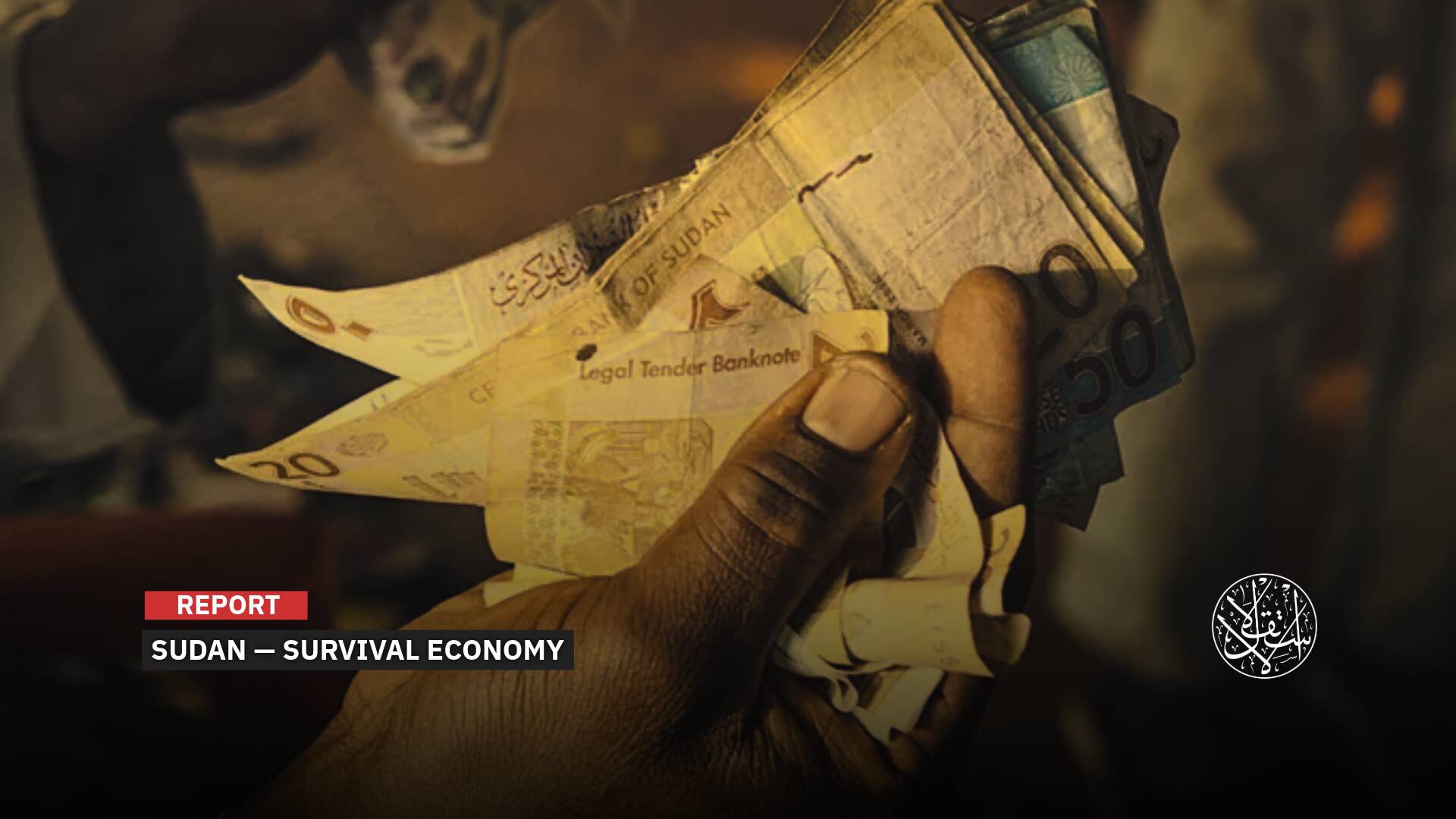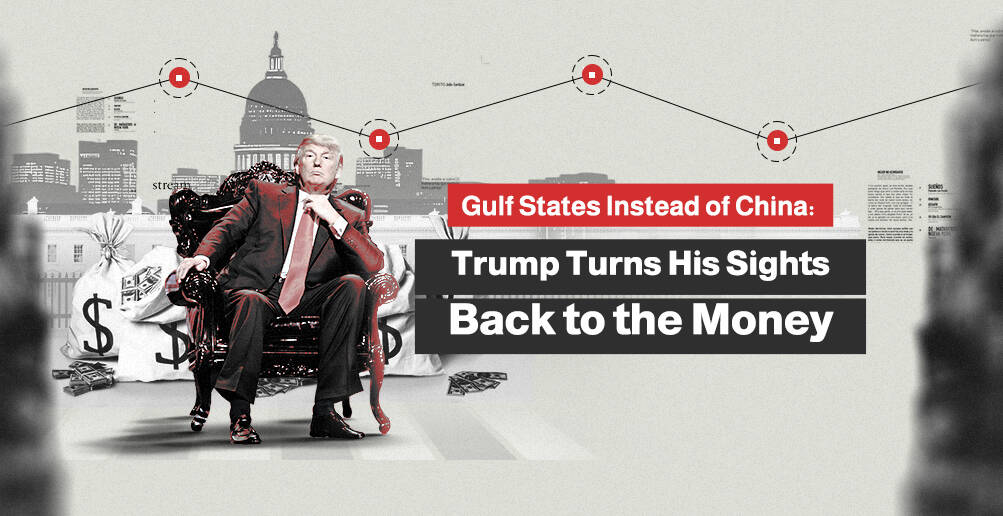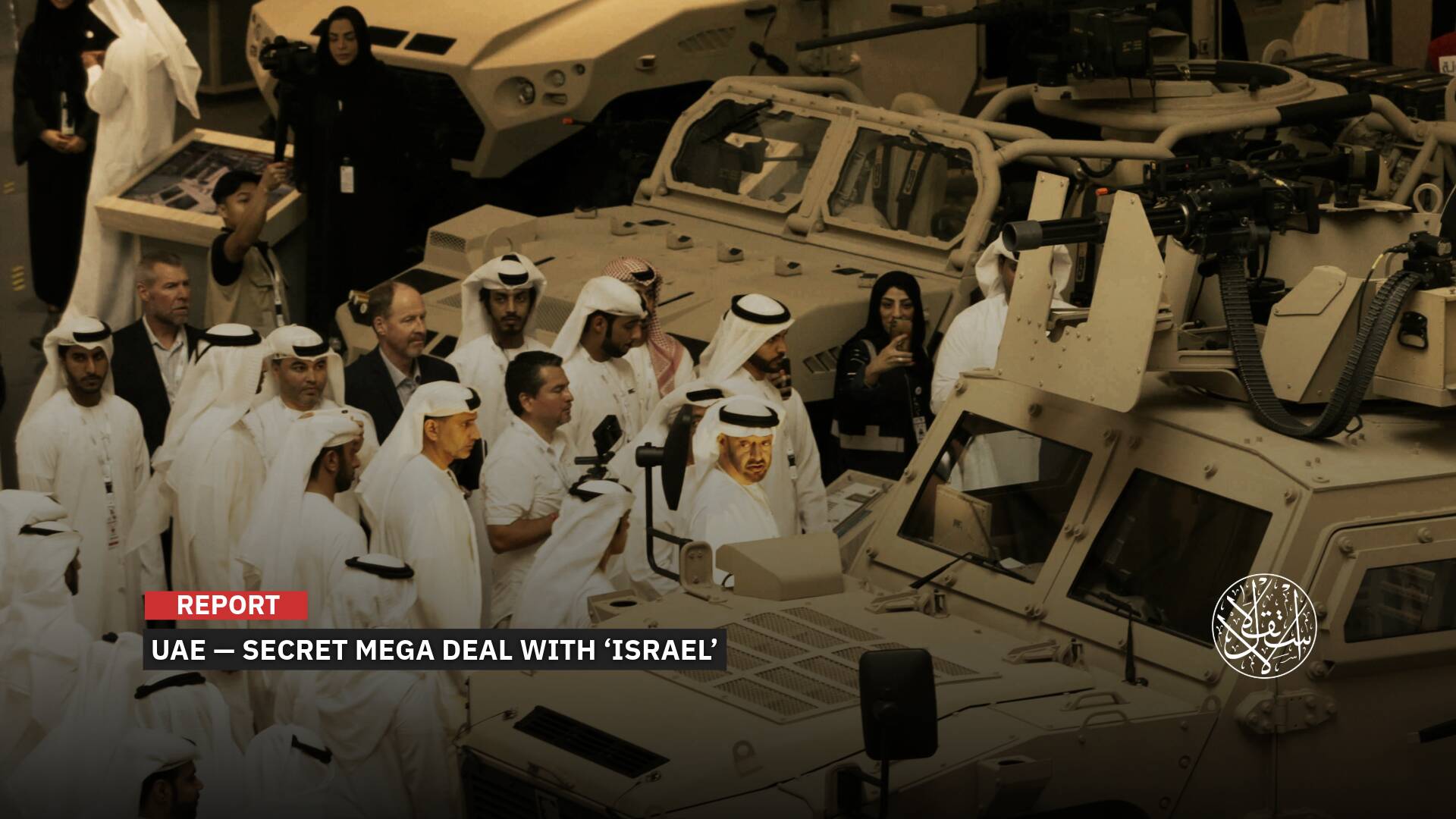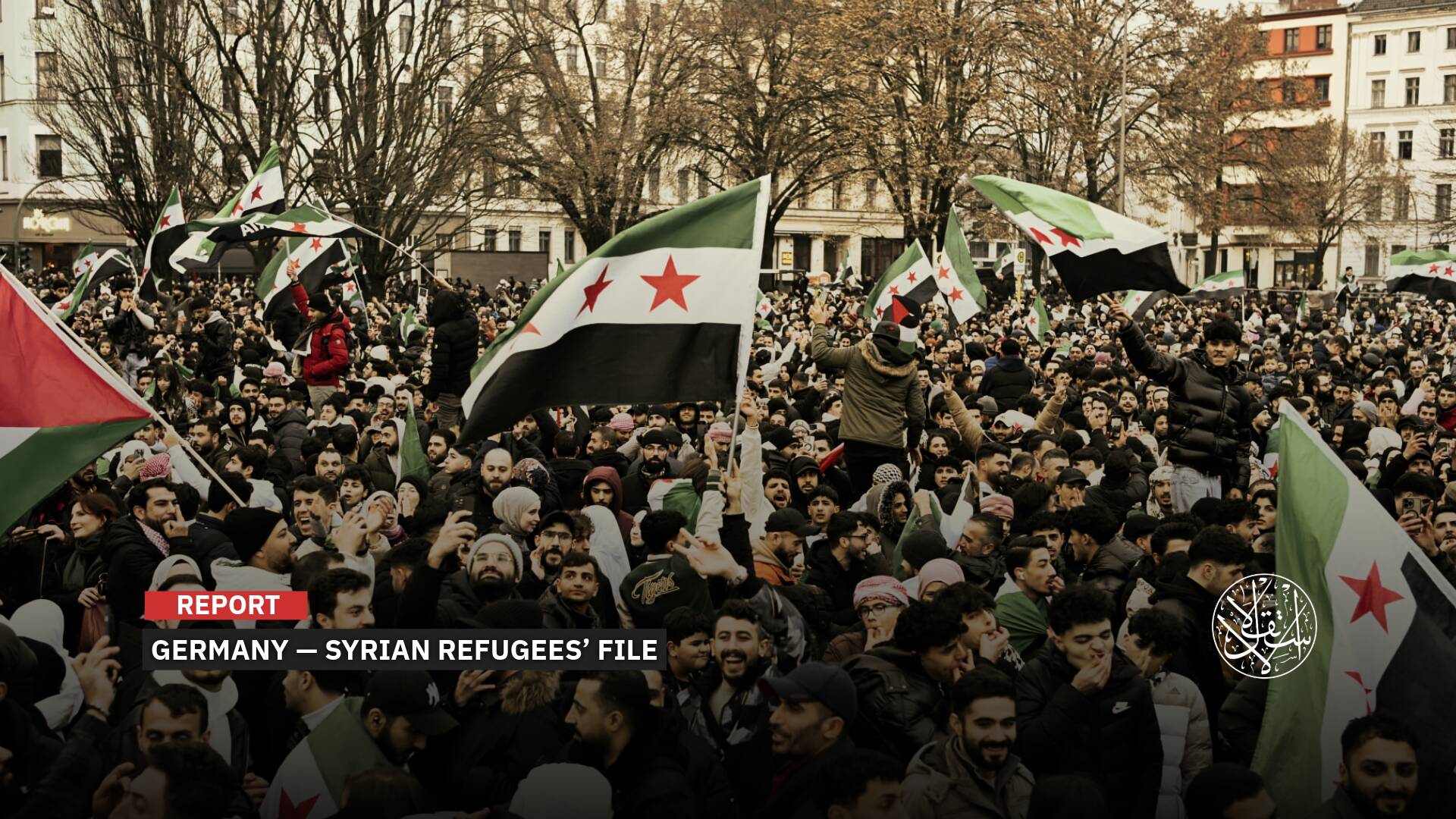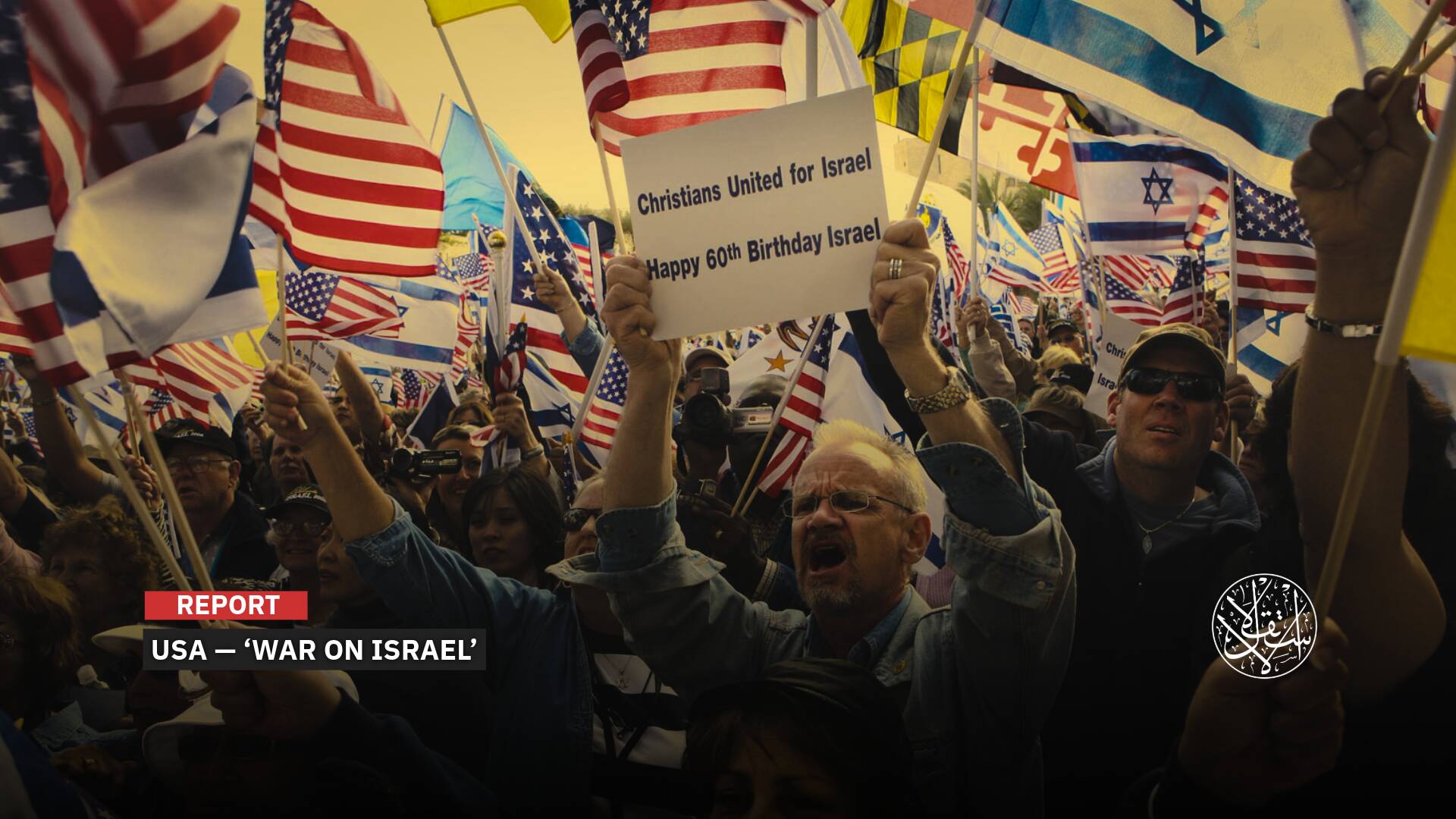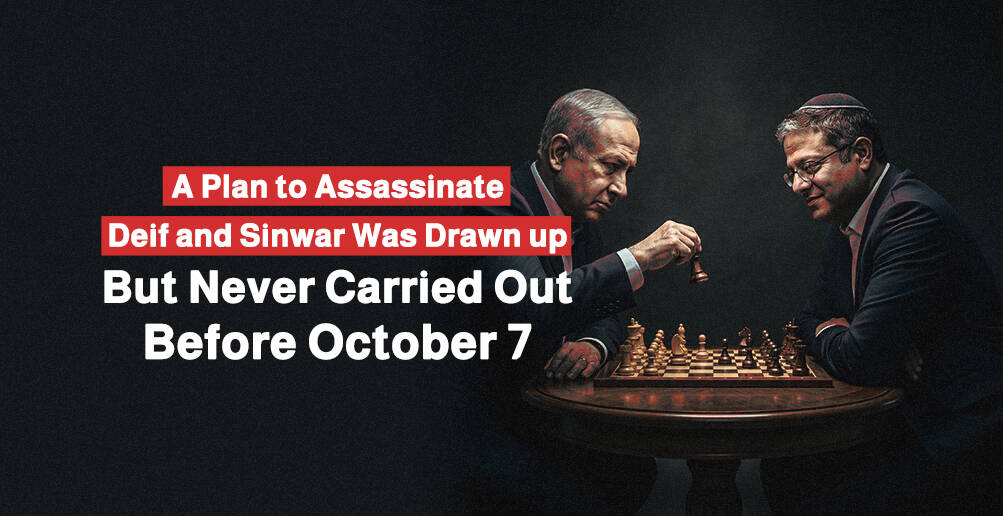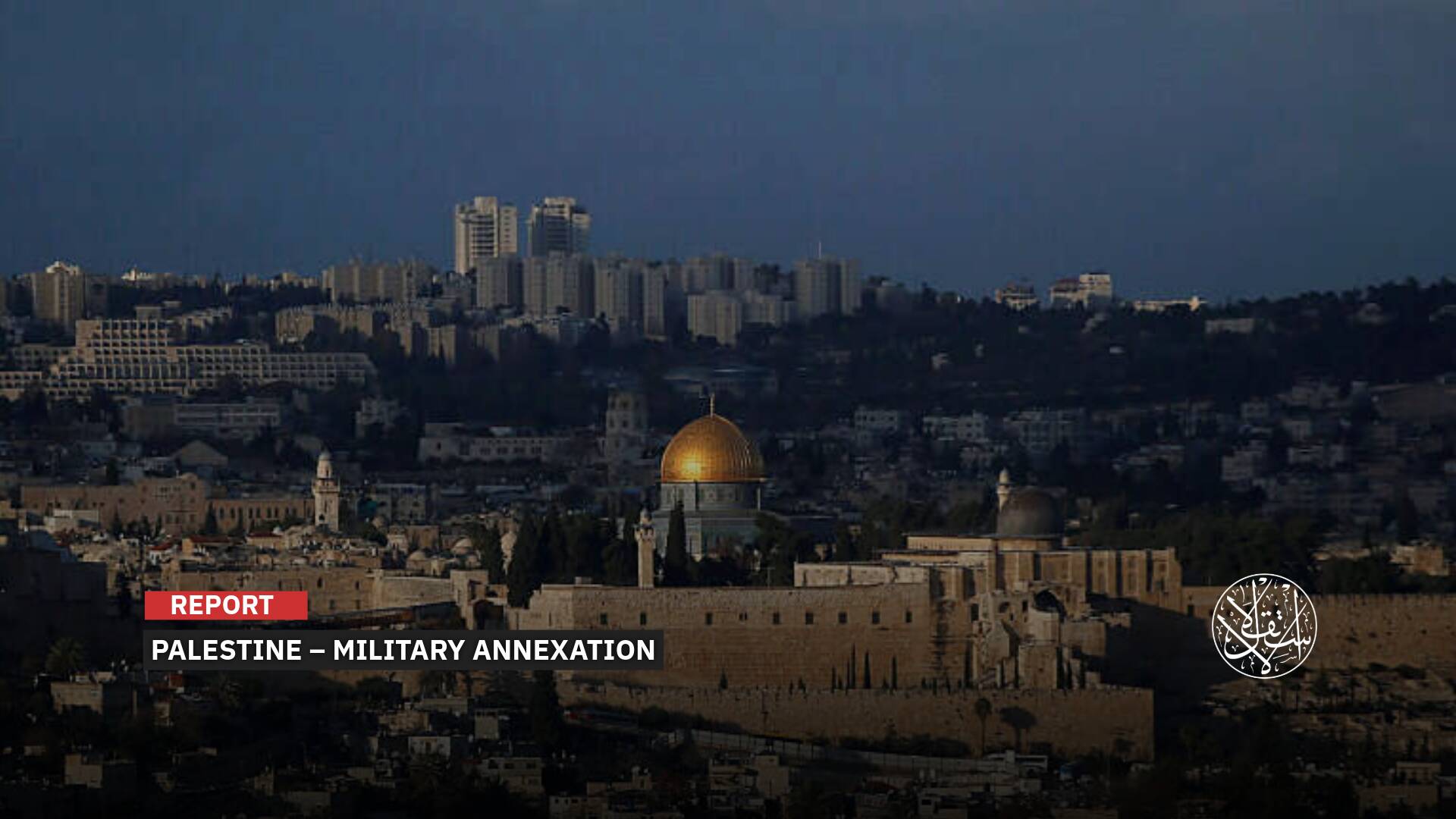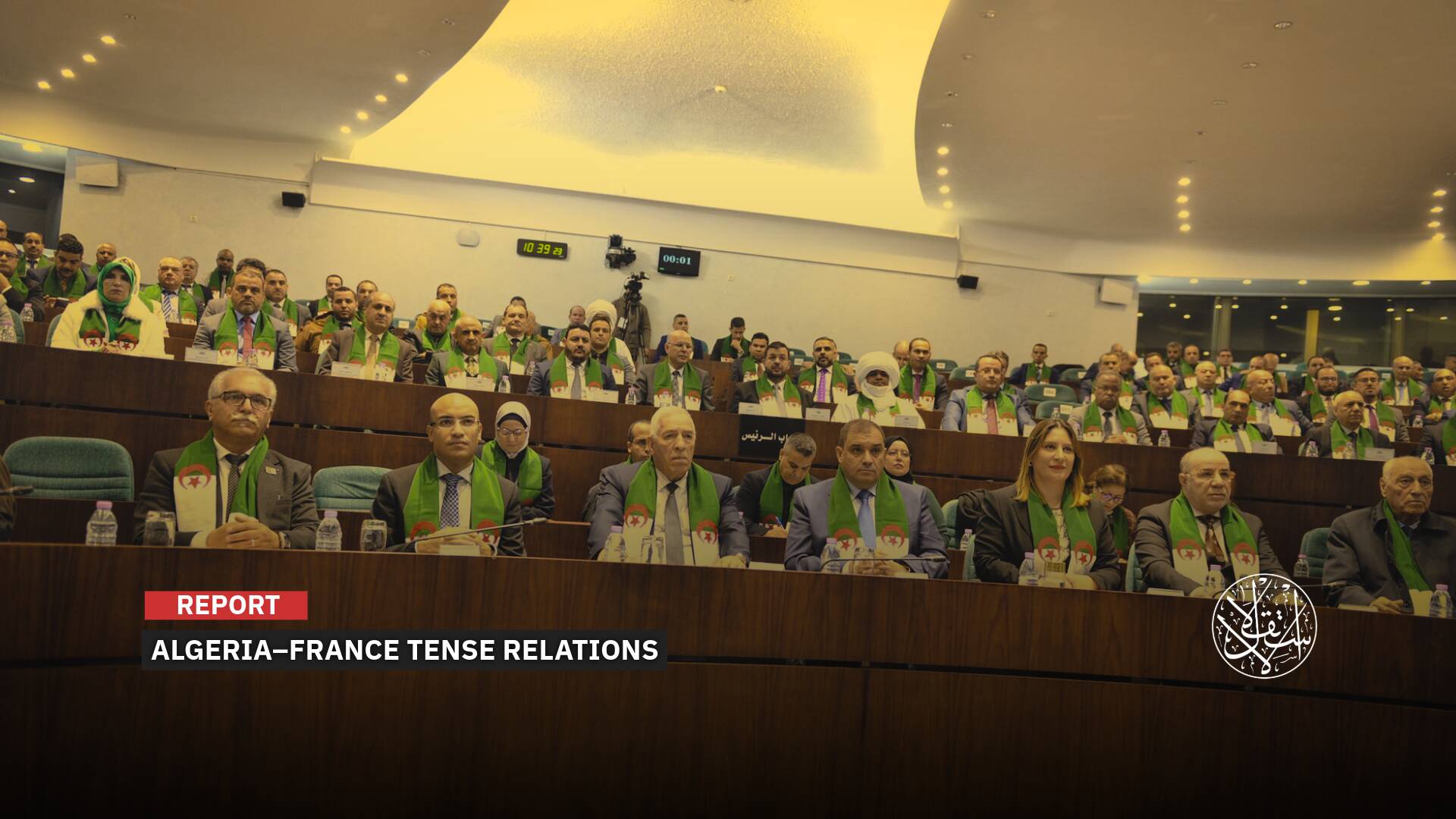Despite Israeli Massacres, Why Does Saudi Arabia and its Media Continue to Demonize Gaza Resistance?

Saudi Arabia endeavors to maintain its focus on bin Salman's plans.
Saudi media and digital committees continue to escalate their hostility toward the Resistance in Gaza and applaud what the Zionists are doing there.
Saudi channels almost celebrate the killing of the resistance fighters by the Israeli Occupation and sympathize with the families of Israeli prisoners, with insufficient concern for the ongoing devastation in Gaza since October 7, 2023.
This raises questions about the reasons behind Saudi Arabia's official hostility toward the resistance, which became evident since Operation al-Aqsa Flood, carried out by the Islamic Resistance Movement (Hamas).
Demonizing Hamas
The official Saudi media portrays "Hamas emerging victorious" as a significant threat to the kingdom, suggesting it would revive the Arab Spring revolutions. Further, it seeks to vilify all aspects of resistance and steadfastness against the Israeli Occupation, expressing fear, through articles by prominent writers and politicians, that its resilience will inspire millions of youth, reviving the culture of jihad and martyrdom.
This was recently leveraged by Saudi Arabia in an attempt to distort and obscure it through significant changes to Islamic identity and festivals featuring dancing, music, singing, entertainment, wrestling competitions, video games, and more. Analysts suggest that Saudi Arabia's official silence in explicitly criticizing Hamas and leaving the escalation to Saudi media and committees on social media is merely an attempt to mirror the popular sentiment toward the movement and Gaza.
This stance conceals Saudi Arabia's true position toward the movement, which directly undermined the kingdom's plans to change the Islamic identity of the country and normalize relations with "Israel."
However, the Saudi dissatisfaction with Hamas, while not openly acknowledged, became apparent in the way Saudi media covered the Israeli aggression in the region.
In a survey conducted by the Washington Institute regarding the extent of changes in Saudi positions due to the war between "Israel" and Hamas, 91% of the sample population confirmed that the war is a victory for Palestinians, Arabs, and Muslims.
The survey, conducted from November 14 to January 6, 2024, with a sample of 1,000 Saudi citizens, affirmed that the Gaza war boosted Hamas's popularity among Saudis from 10 to 40 percent, which worries the Saudi regime.
Just as Gulf regimes, particularly in Saudi Arabia and the UAE, have shown hostility toward Islamists, especially the Muslim Brotherhood, under the pretext that they pose a threat to their thrones, they have done the same with the resistance in Gaza, especially Hamas, describing it as a branch of the Brotherhood.
Following Operation al-Aqsa Flood, which disrupted the Saudi–Israeli normalization process, as revealed by international newspapers, Saudi media intensified its hostility toward Hamas and sought to spread a sense of despair by stating that Gaza was finished and that Hamas leaders should surrender or leave Gaza.
This is despite all indications since the first day of Operation al-Aqsa Flood suggesting the strategic defeat of the Israeli Occupation, regardless of the outcome of the war, according to analyses by Israeli newspapers themselves.
Saudi media ignored the resilience of Gazans on their land and their defiance of aggression, instead publishing stories and articles that belittle this and mock Hamas leadership, claiming they sacrifice the people of Gaza for positions and prestige.
Saudi journalists and pro-authority influencers posted numerous articles and posts that distort the resistance and portray the battle's outcomes as a losing bill paid by Hamas and the people of Gaza.
Egyptian journalist Gamal Sultan said, "Honor and dignity are not commodities that can be bought from supermarkets."
He accused the Saudi media of evaluating the victory of the Resistance in Gaza with the logic of buying and selling goods because "they find it difficult to comprehend that honor and dignity are not like that."
Analysis by Iran Press News Agency indicates that Saudi media promoted the idea that Hamas surpassed the Palestinian Authority, which is considered the legitimate representative of the Palestinian people, by entering the battle without the knowledge of Arab countries like Egypt and Jordan.
It clarified that the underlying objective of this propaganda element lies in the implicit and deductive portrayal of Hamas as a "rebel group" and legitimizing the Israeli Occupation's aggression.
Manifestations of Hostility
In recent years, former Saudi officials and government-affiliated influencers have openly criticized Palestinians on social media for "wasting opportunities to reach a solution to the conflict" and shared sharp posts stating, "Palestine is not my cause."
However, their attack on Hamas intensified through articles and posts on social media platforms following the October 7th attack, alleging that the movement caused the destruction and devastation of Gaza.
The meeting between Hamas leader Khaled Mashal and the Saudi-owned Al-Arabiya channel, known for its negative stance toward resistance, on October 19, 2023, was a clear indication of this media campaign.
Instead of commending the resistance, Al-Arabiya host provocatively asked Mashal, "Do you apologize for what happened to Israeli civilians on the seventh of October?"
The channel's host continued to ask him questions from an Israeli perspective, some of which were confrontational and provocative, consistent with the Saudi political line against Hamas.
Haaretz praised Al-Arabiya's criticism of Operation al-Aqsa Flood on November 26, 2023, and its handling of the dialogue with Mashal "from the Israeli perspective."
This Saudi bias reached its peak of aggression with an article written by Abdulrahman al-Rashed, former editor-in-chief of Asharq al-Awsat newspaper and the Majalla magazine, and former general manager of Al-Arabiya channel, titled Gaza and the Six Misconceptions, published by Asharq al-Awsat and Al-Arabiya simultaneously.
The article, celebrated early by activists as a Zionist victory and the defeat of Palestinian resistance, represents the pinnacle of Saudi bias against the latter.
In his article, al-Rashed not only demonized Hamas and criticized its "bloody" attack on Israelis on October 7, 2023, as he described it, but also vilified its resistance, portraying "Israel" as only killing fighters.
As part of the quasi-official Saudi campaign, Saudi General Abdullah Ghanem al-Qahtani called for the execution of the Hamas leader in Gaza, Yahya Sinwar, and the destruction of the movement.
Al-Qahtani described Sinwar as "a criminal leader with ugly actions, a bad reputation, and a history full of crime, corruption, terrorism, and treachery."
The Saudi general reveals the reason behind this official Saudi animosity by stating that supporters of the "axis of evil" insist that "the nation triumphed with Hamas and that the honor of this world and the hereafter is the movement."
He also linked them to the Muslim Brotherhood, signaling the Saudi regime's concern about the repercussions of a victorious Hamas emerging in a new revolutionary Arab Spring.
Contrary to the implicit support for the Israeli Occupation and demonization of Hamas provided by Saudi channels, Saudi electronic flies, operated by the rulers of the kingdom, vie to display an unreasonable hostility toward the resistance.
The article written by the Secretary-General of the Muslim World League, Muhammad al-Issa, about the war on Gaza in The Economist on January 25, 2024, was the most extreme in showing the official Saudi stance against Hamas.
He described the October 7 operation as horrific, contributing to a sharp loss of trust between Jews and Muslims worldwide, and demanded the immediate release of "Israeli hostages" by Hamas.
"I have dedicated my life to healing divides between Muslims and Jews. This work is unraveling before my eyes."
Antagonism and Celebration!
The official Saudi media's efforts to demonize Hamas and portray the "humanity" of the Israeli Occupation, sympathizing with its families despite the killing and starvation of Palestinians, have led the Zionist enemy to celebrate Saudi articles in Middle Eastern newspapers like Asharq al-Awsat and Okaz supporting the Israeli Occupation.
Since October 7, 2023, Israelis have celebrated through various social media platforms with at least 60 Saudi posts supporting their brutal massacres in Gaza, according to Saudi activists' monitoring.
Israeli television praised an article in Okaz newspaper criticizing Hamas, with Channel 12 describing it as an indication that Saudis are determined to proceed with normalization and are angry because Hamas's attack disrupted their plans for this purpose.
The Israeli media showed enthusiasm for a speculative article about the post-Gaza war era by Saudi journalist Mohammad al-Saaed, published in Okaz on March 4, 2024, harshly criticizing Hamas leaders.
He alleged that they live in "luxurious villas in Arab exile capitals, planning their next vacations in Beirut, London, Paris, and Canada," showing no concern for the suffering people in Gaza.
The Saudi writer did not stop there; he attacked Yahya Sinwar and described him as the cause of killing and destruction in Gaza, labeling Operation al-Aqsa Flood on October 7th as "the seventh of October folly."
In general, the Saudi regime is deeply apprehensive and hostile toward Sunni Islamists, perceiving them as a significant security threat. It has labeled their key institutions as "terrorist entities" and has taken extensive measures to oppose and demonize them.
Saudi academic Professor Ahmad bin Rashid bin Saeed traces the roots of the Saudi anti-Islamic resistance stance in Gaza. He explained to Al-Estiklal that "Sharia politics, or Islamic theory in governance, or what they call political Islam, greatly worries them, considering it a threat to their regime because it involves good governance, consultation, freedoms, justice, and the rights of the subjects, matters they dislike and seek to suppress."
Although they come submissive to only one aspect of this "political Islam," which is obedience to the ruler and the obligation to seek his permission for jihad, this obedience has conditions and requirements that official propaganda ignores, insisting on presenting it in isolation from its rules and contexts, according to him.
When the Arab Spring erupted, the kingdom felt shocked, and when the Islamic current emerged, it directed hostility toward it.
The animosity toward the Islamic phenomenon has increased under the current regime, which embarked on a campaign of demonization and defamation against them (the Muslim Brotherhood and all Sunni groups).
Bin Saeed explained that in the view of Saudi decision-makers, the Arab Spring was a painful danger because its demands for freedoms, democracy, and the choice of ruler were intolerable, and popular protests became forbidden as they were seen as a rebellion against the ruler.
He affirmed that the Saudi religious discourse associates these matters with chaos, anarchy, and the destruction of homes, saying, "The victory of the Muslim Brotherhood candidate, Dr. Mohamed Morsi, in the Egyptian presidential elections provided a convenient pretext to confine the problem to the Brotherhood and to direct all blame toward them."
He explained the reason for their animosity toward Hamas, saying, "The movement is of course part of the Muslim Brotherhood; this is how Saudi Arabia sees it, and Operation al-Aqsa Flood on October 7th went beyond the general context, beyond the Palestinian Authority, beyond the ruler, Mahmoud Abbas, recognized both regionally and internationally.
"This is the Saudi adaptation to respond to an operation that was not expected."
In their view, all the flaws came together in Hamas: it's Brotherhood, it's associated with the Arab Spring, and it's acting independently! Therefore, Saudi Arabia criminalized Operation al-Aqsa Flood, refused to describe the movement as resistance, and even went so far as to completely drop the label of "occupation" from the enemy, according to bin
Saeed.
The kingdom announced in 2014 that the Muslim Brotherhood, the organization from which Hamas emerged, is "terrorist."
They Want to Defeat It
The Saudi academic confirms that what bothers the Saudi regime the most is that it has spent billions of dollars on channels, platforms, newspapers, employing all the arts to normalize relations with the Israeli Occupation, break down barriers with it, demonize Islamists, belittle resistance, and break the morale of the resistors.
Then came Hamas on the morning of October 7, 2023, to blow up all those efforts in a devastating manner, throwing decades of distracting propaganda and brainwashing into chaos, as if Allah's saying was embodied in that historical moment: "Rather, We dash the truth upon falsehood, and it destroys it, and thereupon it departs."
Also, the emergence of Hamas victorious, as bin Saeed says, means in the eyes of Saudi Arabia a revival of the Arab Spring, an affirmation of the effectiveness of the concept of resistance, which will inspire millions of youth and restore the status of the culture of jihad and martyrdom, something Saudi Arabia has invested decades in distorting and sidelining.
Bin Saeed explained that the new Saudi Arabia does not want wars with "Israel" or even enmity, focusing instead on singing and music concerts, entertainment competitions, and video games, even abandoning the concept of the nation (umma), leaning toward the idea of regionality that keeps it away from the issues of the nation, especially Palestine.
He concludes by saying: "Just as the counter-revolutionary countries [Egypt, Saudi Arabia, and the UAE] wanted to end the Arab Spring, they also want to defeat Hamas, which represents a model of jihad for the sake of Allah, sacrifice, resilience, and steadfastness, which made it align with Netanyahu in his aggression, as if it was fighting with him in the same trench."
In November 2023, Elie Podeh, a professor at the Hebrew University in Jerusalem, wrote in the prestigious Israeli economic newspaper Globes, analyzing the repercussions of the October 7 attack on Riyadh's plans to raise public awareness.
He explained that despite the ongoing wave of festivals, advertisements, and events that characterized the rule of the Crown Prince, Mohammed bin Salman, the war in Gaza dealt a blow to the kingdom's diplomatic and economic strategy.
He said that Saudi Arabia is trying to maintain its focus on the plans of bin Salman to reshape the economy and reduce dependence on oil, including music concerts, fashion shows, and even fashion shows, but things are not as they seem on the surface.
Elie Podeh believes that contrary to the image the kingdom is trying to export, behind the scenes, Saudi officials are striving to contain the repercussions of the conflict, fearing that it will destabilize the entire region.
Regarding the Saudi stance, he said that Riyadh has never supported Hamas or Islamic Jihad because the power of the former conflicts with Saudi interests in promoting peace and stability in the Middle East.
Podeh concluded that the Saudi regime wants to see Hamas weakened, if not completely eliminated, especially since such a small organization managed to humiliate the mighty kingdom and push it to suspend normalization with "Israel," something it will not forget for the Palestinian movement.
Yoel Guzansky, a prominent researcher at the Institute for National Security Studies (INSS), explained in an interview with Globes that weakening Hamas would be beneficial to the internal security calculations of the kingdom and its Gulf neighbors, as they are supported by Iran, while the victory of the movement would strengthen the Muslim Brotherhood in various Arab countries.


